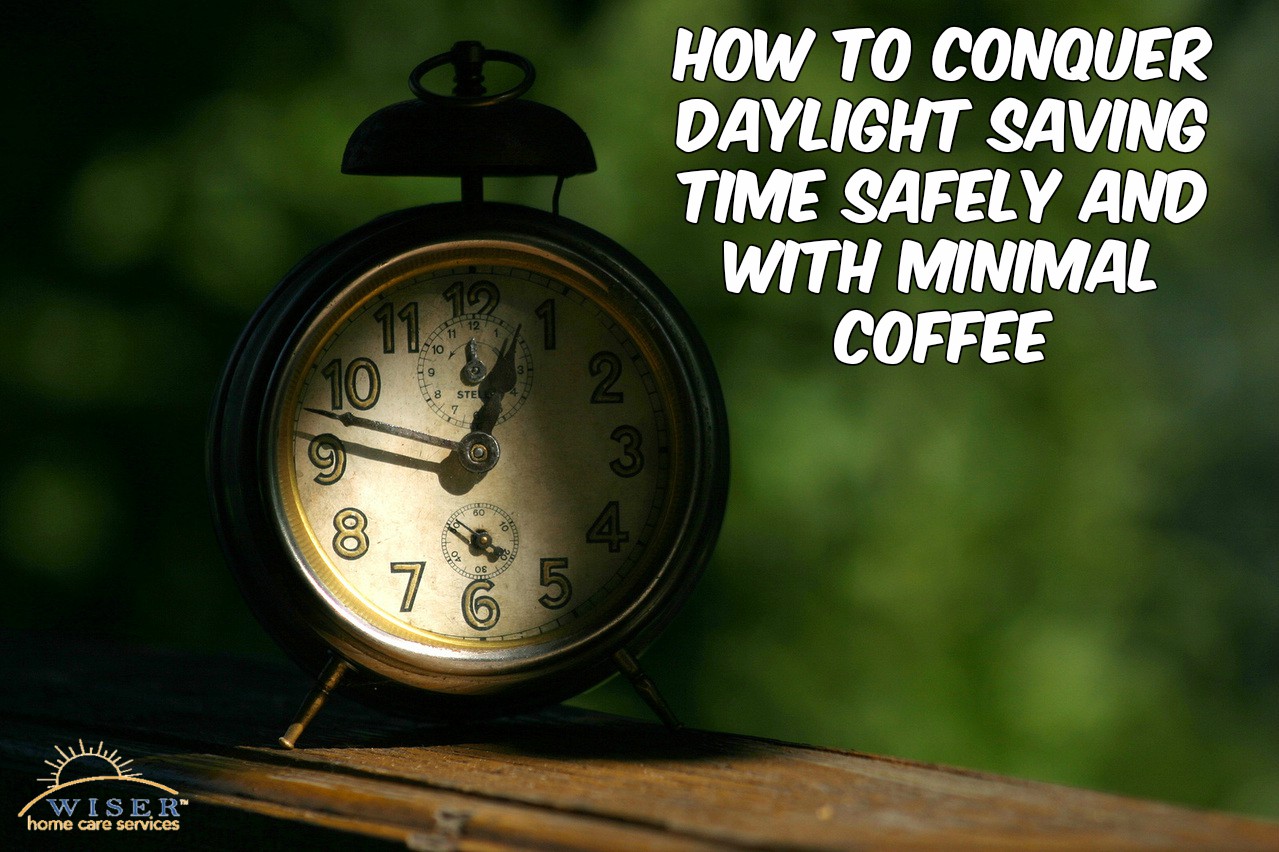If there’s one thing we love more than sunny weather and caregiving, it’s our sleep. And thanks to Daylight Saving Time, we will be losing some. Fortunately, we live in the Pacific Northwest, arguably one of the top coffee meccas of the world, or else we’d be in a lot more pain.
If you can’t tell, we are a little bitter about the thought of losing sleep. Can you blame us? We’re caregivers and need all the rest we can get so our clients get the best care.
Daylight Saving Time isn’t all bad, though. At the very least, it signifies that longer days are on the horizon and we are certainly looking forward to that. However, before we can make it to Spring and those longer days, we have to make it through the time change.
You may think we are being melodramatic, and that losing an hour of sleep isn’t really that big of a deal, but statistically speaking it can be a big deal. In fact, research has found that car accidents, strokes and heart attacks all spike in the days after the Daylight Saving Time change. In addition, the time change is also linked to increased workplace injuries, increased web surfing, restless sleep and increased occurrences of cluster headaches.
If you’re in the same boat as us, and the coffee isn’t going to cut it, keep reading to learn the 7 other tips that are helping us safely adjust to the time change.
Get the Same Amount of Sleep
Just because we lost an hour, does not mean you have to lose an hour of sleep. Just compensate for it by going to bed a little bit earlier, or if you have the luxury, sleep in a little bit longer.
Adjust Gradually
Tip #1 will only help ensure you get enough sleep. However, your body will eventually need to sync with the time change. To do this as easily as possible, we suggest going to bed 15 minutes earlier each night. This will help you ease into the time change.
Enjoy the Longer Day by Being Active
As we mentioned earlier, Daylight Saving Time is bittersweet because while we lose an hour of sleep, we gain an hour of daylight. That means you can get out and actively enjoy the good weather. In fact, being active during the day will help you sleep better at night. Just make sure you end your workout at least 2 hours before you plan on going to bed.
Treat Yourself to Caffeine only in the Morning
Trust us, we know how important caffeine is. We suffer from the same problems. But, if you’re going to make it through this week with your sanity intact, you will want to cut off the caffeinated beverages by noon each day. Otherwise, the caffeine will increase your risk of sleep fragmentation.
Unplug
For some of us, this is a pretty tough thing we are asking to do, but your body will thank you. To get your brain in the right mood for optimized sleep, experts recommend unplugging from screened devices for a little while. The blue light from electronic screens is known to reduce the body’s production of melatonin (the hormone that tells the brain it is time for bed).
Forego the Nap
Your body may be begging you for a nap, but we urge you to reconsider. While a short nap may be helpful, if you accidentally sleep too long it could backfire and make it more difficult for you to get quality sleep during the night.
Be Wary of Sundowners Syndrome
Sundowners Syndrome is a “symptom of Alzheimer’s disease and other forms of dementia in which loved one’s get confused and agitated in the late afternoon and evening.” This problem can be further worsened by the time change. Read our blog titled, “The Caregiver’s Guide to Managing Sundowners Syndrome”, to learn more. You can find it here: https://wisercareservices.com/blog/caregivers-guide-to-managing-sundowners-syndrome/
As always, Wiser Home Care is here to help you with whatever you need, even if it means helping you get used to the time change. From providing care to developing an extensive care plan for your loved one, and everything in between, we are happy to help. Please contact us, and we will be happy to answer any questions you may have.

